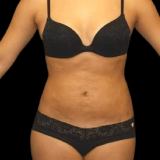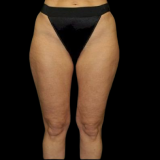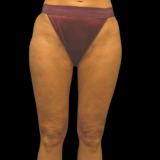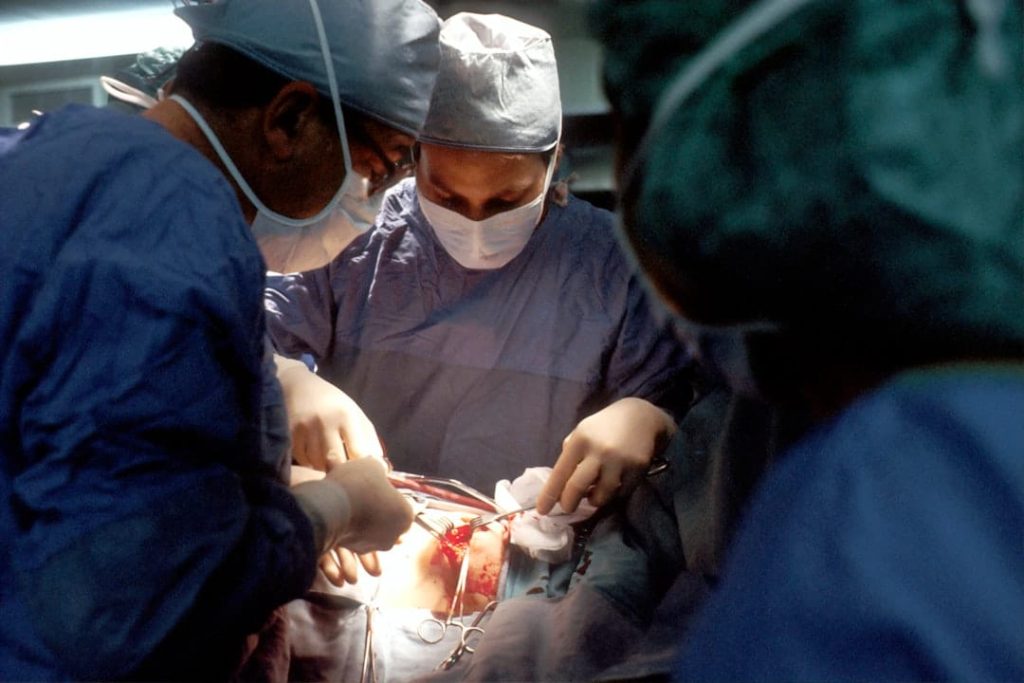Contents
The Key to a Successful Facelift: Choosing the Best Surgeon
Finding the best facelift surgeon is essential for achieving your desired youthful appearance and ensuring top-notch care throughout the process. Here are some critical elements to look for when choosing a facelift surgeon:
- Board Certification: Verify their board certification to ensure they meet high standards.
- Experience: Look for surgeons with experience in facelift procedures.
- Professional Reputation: Consider surgeons highly regarded in the plastic surgery community.
- Patient Reviews: Read reviews to get a sense of patient satisfaction.
Achieving a youthful appearance and facial rejuvenation requires skilled hands and personalized care. As we age, factors like declining collagen and elastin levels cause our skin to sag, leading many to consider a facelift.
My name is Shlomo Widder, MD, a board-certified plastic surgeon with over 35 years of experience. My expertise lies in helping patients find the best facelift surgeon to achieve natural, refreshd results. Let’s dive into what makes a surgeon the best choice for your facelift.
What is a Facelift?
A facelift, or rhytidectomy, is a cosmetic surgical procedure designed to reduce the visible signs of aging on the face and neck. This procedure can address issues like loose, sagging skin, deep wrinkles, and jowls, providing a more youthful and refreshd appearance.
Types of Facelifts
There are several types of facelifts, each targeting different areas and depths of the face. Let’s explore the most common ones:
Deep Plane Facelift
The Deep Plane Facelift is one of the most advanced techniques available. It targets the deeper structures of the face, including the muscles and fat pads. This method is particularly effective for addressing the midface area, such as nasolabial folds. By repositioning the fat pads and muscles, it restores volume and youthfulness to the face.
SMAS (Superficial Musculoaponeurotic System) Facelift
The SMAS Facelift is a traditional approach that focuses on the layer of tissue beneath the skin, known as the SMAS. This method is effective for lifting and tightening the lower face and neck muscles, resulting in a more defined jawline and refreshd lower face. It is particularly beneficial for those with jowls and skin laxity.
Mini Facelift
The Mini Facelift is a less invasive version of the traditional facelift. It involves smaller incisions, typically made behind the ear, and focuses on adjusting the skin. This procedure is ideal for patients who are just starting to show signs of aging and want to tighten their skin and reduce sagging with minimal downtime.
Endoscopic Facelift
The Endoscopic Facelift uses small cameras to guide instruments during the procedure. It is minimally invasive and involves incisions that are about one inch long, usually made above the hairline or behind the ear. This technique is most effective for moderate corrections, such as lifting the midface and brow, and results in hidden sutures and a quick recovery time.
Choosing the Right Facelift for You
Each type of facelift offers unique benefits and is suited for different needs. Consulting with an experienced and board-certified plastic surgeon, like myself, can help you determine which type of facelift is best for your specific goals and concerns.

Understanding the different facelift options is the first step toward achieving a refreshd appearance. Up next, we’ll discuss the key factors to consider when choosing the best facelift surgeon for your needs.
Key Factors to Consider When Choosing the Best Facelift Surgeon
Choosing the best facelift surgeon is crucial for achieving the results you desire. Here are the key factors to consider:
Qualifications
Qualifications are foundational. Ensure your surgeon has completed extensive training in plastic and reconstructive surgery. They should have a medical degree from a reputable institution and specialized training in facial plastic surgery.
Board Certification
Board certification is a must. Look for surgeons certified by the American Board of Plastic Surgery. This certification ensures they meet rigorous standards for education, ethics, and safety.
“When researching surgeons to perform your facelift procedure, make sure that you select a plastic surgeon board-certified by the American Board of Plastic Surgery.” – Widder Plastic Surgery
“When researching surgeons to perform your facelift procedure, make sure that you select a plastic surgeon board-certified by the American Board of Plastic Surgery.” – Widder Plastic Surgery
Experience
Experience matters. Ask how many facelifts the surgeon has performed and how frequently they perform the procedure.
Professional Reputation
A surgeon’s professional reputation can be a strong indicator of their skill and reliability. Look for surgeons who are leaders in their field, have authored seminal textbooks, or frequently lecture at international conferences.
Patient Reviews
Patient reviews provide insight into the surgeon’s bedside manner, communication skills, and the overall patient experience. Look for consistent positive feedback and before-and-after photos of previous patients.
“During your consultation, request to look at before and after photos of patients with similar shapes, structures, or concerns as you.” – Widder Plastic Surgery
“During your consultation, request to look at before and after photos of patients with similar shapes, structures, or concerns as you.” – Widder Plastic Surgery
By considering these factors, you can find a highly-skilled, board-certified facelift specialist who will help you achieve the best outcomes.
Up next, we’ll explore the top destinations for facelift surgery.
Top Destinations for Facelift Surgery
Choosing the best destination for your facelift surgery is crucial. At Widder Cosmetic and Plastic Surgery Center, located in Northern Virginia near Metropolitan Washington D.C., we provide top-tier cosmetic surgery services.
Our state-of-the-art facility and the expertise of Dr. Shlomo Widder ensure that you receive the highest quality of care and results.
Why Choose Us: – Convenient Location: Easily accessible for patients in Northern Virginia, Washington D.C., and Baltimore.
Expertise: Led by Dr. Shlomo Widder, a board-certified surgeon with over 35 years of experience.
Comprehensive Care: We offer a full range of facial rejuvenation procedures, including facelifts, tailored to meet your individual needs.
By choosing Widder Cosmetic and Plastic Surgery Center, you are opting for a facility that combines convenience with excellence, ensuring a satisfying and transformative experience.
The Best Facelift Surgeons in the US
Choosing the best facelift surgeon can significantly impact your results. Here, we’ll highlight the expertise and skills of Dr. Shlomo Widder, our board-certified plastic surgeon at Widder Cosmetic and Plastic Surgery Center. Dr. Widder brings over 35 years of experience in plastic surgery, specializing in facelifts and facial rejuvenation. His commitment to excellence and personalized care ensures that each patient achieves the best possible outcomes with natural-looking results.
Key Highlights:
Experience: Over 35 years in the field, specializing in facelifts.
Board Certification: Certified by the American Board of Plastic Surgery.
Patient Care: Known for personalized attention and tailored treatment plans.
Dr. Widder’s approach combines advanced surgical techniques with a deep understanding of facial aesthetics, making him a top choice for those seeking a facelift in the Northern Virginia and Metropolitan Washington D.C. area.
The Best Age for a Facelift
Deciding the best age for a facelift can be tricky. There’s no one-size-fits-all answer because everyone’s skin ages differently. However, there are some general guidelines and signs of aging to consider.
Optimal Age Range: 35-65
Most facelift patients are between 40 and 60 years old. This age range is ideal because the skin still has enough elasticity to achieve good results. Yet, it’s also when the signs of aging become more noticeable.
Signs of Aging
Common signs that you might benefit from a facelift include:
- Loose, sagging skin on the face and neck
- Deeper wrinkles and folds around the mouth and nose
- Loss of facial volume, making the face look tired or deflated
- Jowls or a less defined jawline
If you notice these signs, it might be time to consult a facelift surgeon.
Early Intervention Benefits
Some people choose to undergo a facelift in their late 30s or early 40s. This is often called “prejuvenation.”
Early intervention can:
- Delay more severe signs of aging
- Provide more natural-looking results
- Require less extensive surgery in the future
Patients in their 50s and 60s can also achieve excellent results, although the surgery might be more complex due to more advanced aging.

Personalized Consultation
Every face is unique, and so is the aging process. It’s essential to consult with a board-certified plastic surgeon who can assess your individual needs and recommend the best timing and type of facelift for you.
By understanding the optimal age range and signs of aging, you can make an informed decision about when to take the next step in your facial rejuvenation journey.
The Most Effective Facelift Techniques
When it comes to facelift surgery, there are several techniques available. Each has its own benefits and is suited to different needs. Let’s explore the most effective facelift techniques:
Deep Plane Facelift
A Deep Plane Facelift targets the deeper structures of the face, including the muscles and fat pads. This technique is ideal for those with severe sagging and deep wrinkles. By repositioning these deeper tissues, it provides a natural and long-lasting lift.
SMAS Facelift
The SMAS (Superficial Musculoaponeurotic System) Facelift is a traditional and widely-used technique. It focuses on lifting and tightening the SMAS layer, which includes the muscles and tissues just beneath the skin. This method is particularly effective for addressing jowls and sagging skin in the lower face and neck.
Mini Facelift
A Mini Facelift is less invasive than a traditional facelift and is best for those who are just beginning to show signs of aging. This technique involves smaller incisions, usually behind the ear, and focuses on tightening the skin and reducing minor sagging.
Patients who undergo a mini facelift often experience quicker recovery times and less scarring. It’s a great option for those looking for subtle improvements without the downtime of more extensive surgery.
Endoscopic Facelift
The Endoscopic Facelift is a minimally invasive technique that uses small cameras to guide the surgical instruments. This allows for precise adjustments to the midface and brow area. It’s effective for correcting moderate sagging, hollowing under the eyes, and a drooping forehead.
One of the main advantages of the endoscopic facelift is the smaller incisions, typically about one inch long and hidden above the hairline or behind the ear. This results in minimal scarring and a quicker recovery time.
Tissue-Glue Facelift
For those looking for a unique approach, the Tissue-Glue Facelift uses fibrin, a safe biological agent, to close incisions instead of traditional sutures. This method can reduce swelling and bruising, leading to a smoother recovery process.
Each of these facelift techniques offers distinct advantages. The best choice depends on your specific needs and goals. Always consult with a board-certified plastic surgeon to determine which method is right for you.
Frequently Asked Questions about Choosing the Best Facelift Surgeon
Where is the best country to get a facelift?
When considering a facelift, location matters. Some countries are renowned for their advanced techniques and experienced surgeons. However, it’s essential to choose a location that aligns with your needs and expectations, ensuring you receive the highest quality of care.
Who is the best plastic surgeon in the US for facelift?
Selecting the best facelift surgeon in the US can be challenging due to the many talented professionals available. However, Dr. Shlomo Widder at Widder Cosmetic and Plastic Surgery Center stands out for his extensive experience and commitment to achieving natural-looking results.
What is the best age for a facelift?
The best age for a facelift varies depending on individual factors like skin laxity and bone structure. However, most patients who undergo facelift surgery are between 35 and 65 years old. Consulting with a board-certified plastic surgeon like Dr. Widder can help you determine the right timing based on your unique needs.
Conclusion
Choosing the right surgeon is crucial for a successful facelift. At Widder Cosmetic and Plastic Surgery Center, we pride ourselves on offering personalized care and an extensive range of procedures custom to each patient’s needs.
Dr. Shlomo Widder, our board-certified plastic surgeon, brings years of expertise and a commitment to excellence. Situated in Northern Virginia, our state-of-the-art facility is conveniently located near Metropolitan Washington D.C. and Baltimore, making it accessible for many seeking top-tier cosmetic surgery.
Our goal is to help you look and feel your best. Whether you’re considering a facelift, neck lift, or any other facial rejuvenation procedure, we ensure you receive the highest level of care and attention throughout your journey.
Ready to take the next step? Schedule your consultation with Dr. Widder today and find how we can help you achieve a youthful, vibrant appearance.





